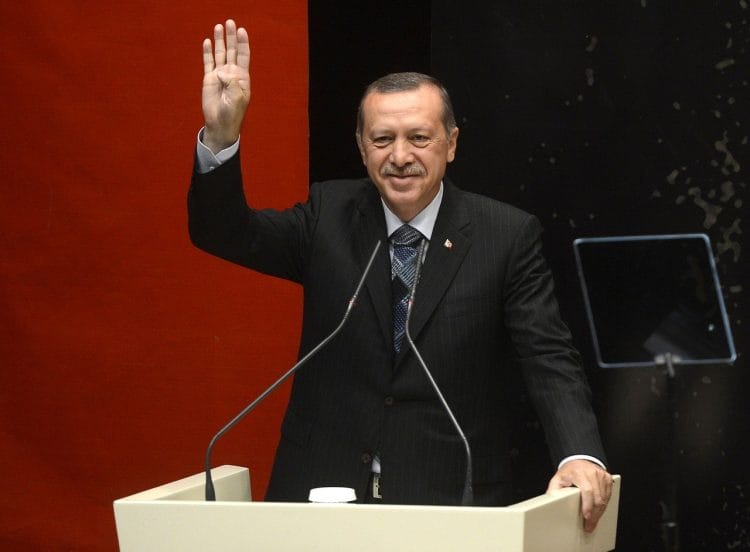Photo credit/Pixabay-Gerd Altmann
Turkey’s response has been to position itself as the new center of gravity in the region. By stepping into the void left in Syria by Iran and Russia, Ankara is reshaping the balance of power of the entire Middle East.
The fall of the Assad regime in Syria marks a seismic shift in the Middle East, definitively dismantling the Shia Crescent—a strategic alliance stretching from Tehran to Beirut that Iran spent decades building. This collapse creates a vacuum that Turkey, under President Recep Tayyip Erdoğan, is rapidly moving to fill. The regional order is being redefined, with Turkey emerging as a dominant player in Syria and beyond, reshaping the geopolitical map of the Middle East.
Turkey’s Strategic Moves in Post-Assad Syria
With Iran’s influence waning, Turkey has seized the opportunity to extend its reach. Erdoğan’s government has long viewed Syria as a critical area for expanding Turkish influence. The fall of Assad has removed a key obstacle to this vision, allowing Turkey to intensify its involvement.
In northern Syria, Turkey has entrenched itself through military operations and infrastructure projects. Cities like Afrin and Al-Bab now operate under de facto Turkish administration, with Ankara overseeing schools, hospitals, and municipal services. However, Turkey’s ambitions extend far beyond these regions. Plans to connect northern Syria with Damascus highlight Erdoğan’s vision of integrating Syria into Turkey’s economic and political orbit.
The strategy involves not only direct intervention but also fostering local proxies. Figures like Abu Mohammad al-Julani, the leader of Hay’at Tahrir al-Sham (HTS), are being transformed from militant leaders into political actors aligned with Turkish interests. By legitimizing such figures, Turkey is positioning itself as the principal power broker in Syria’s fragmented political landscape.
A Turkish Counterweight to Iran’s Former Dominance
The collapse of the Assad regime has undermined Iran’s ability to maintain its Shia Crescent, a network of allies and proxies spanning Syria, Iraq, and Lebanon. This shift weakens Tehran’s corridor of influence and disrupts its supply routes to Hezbollah in Lebanon.
Turkey’s response has been to position itself as the new center of gravity in the region. By stepping into the void left by Iran, Ankara is recalibrating the balance of power. While Iran’s influence in Syria was largely military and ideological, Turkey’s approach is multifaceted, combining military presence with economic integration and political maneuvering.
Ankara’s strategy also appeals to the Sunni majority in Syria, contrasting with Iran’s sectarian Shia agenda. This Sunni alignment allows Turkey to present itself as a more natural partner for regional actors disillusioned with Iran’s heavy-handed policies.
Economic Integration as a Power Tool
Turkey’s role in post-Assad Syria is not limited to politics and security; economic integration is central to its strategy. Ankara has invested heavily in rebuilding infrastructure in Syrian territories under its control, creating trade routes and economic dependencies that bind these regions to Turkey.
Turkey’s partnership with Qatar further amplifies its economic leverage. The Turkish-Qatari alliance has provided financial backing for Turkey’s initiatives in Syria, allowing Erdoğan to solidify his country’s influence. This economic strategy not only benefits Turkey but also appeals to European nations eager to stabilize Syria and address the refugee crisis.
By creating a functioning economic framework in northern Syria, Turkey is positioning itself as the architect of a “new Syria.” This role not only enhances its regional influence but also diminishes Iran’s ability to reestablish its foothold in the country.
Turkey’s Broader Regional Ambitions
Beyond Syria, Turkey is leveraging the collapse of Iran’s Shia Crescent to expand its influence across the Middle East. In Iraq, Turkey has deepened its presence in the Kurdish regions, conducting military operations against the PKK and establishing trade ties with Erbil. In Lebanon, Ankara is fostering relationships with Sunni communities, further challenging Iran’s dominance in Hezbollah-controlled territories.
Turkey’s assertiveness also extends to the Eastern Mediterranean, where it is pursuing energy interests and strengthening alliances with Qatar and other Sunni states. This multifaceted approach underscores Turkey’s ambition to replace Iran as the dominant regional power.
Challenges and Implications for the Region
Turkey’s expanding role in the Middle East presents a complex challenge for other regional players, particularly Israel. While the fall of Assad and the collapse of Iran’s Shia Crescent diminish a long-standing adversary, they also bring Turkey closer to Israel’s doorstep, altering the dynamics within the Sunni axis that has emerged in recent years to counterbalance Iran’s growing influence in the region.
The fall of Assad and the subsequent collapse of Iran’s Shia Crescent have ushered in a new era for the Middle East. Turkey, under Erdoğan’s leadership, is seizing the moment to expand its influence, leveraging a combination of military, economic, and political strategies. As Turkey positions itself as the dominant power in post-Assad Syria and beyond, the region faces a new geopolitical reality.






